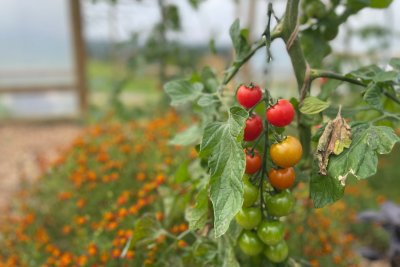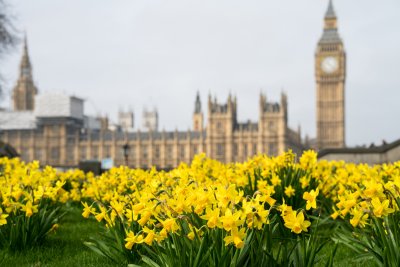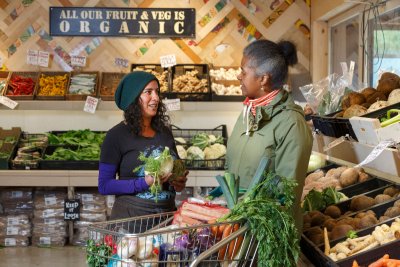Revealed – what our athletes will eat in Rio
All fish served during the London 2012 Olympics met top standards for sustainability as part of the Games’ food vision. How will Rio do in comparison?
The London 2012 Olympic and Paralympic Games was the first major international sporting event for which food choices were a significant and important part of the sustainability policy. Sustainable Fish Cities worked with the Olympic committee to produce the first ever sustainable fish standards for such an event and ensured that only 100% demonstrably sustainable fish was served at the Games [1]. In practice this meant that endangered fish species were pulled from menus and sustainable fish sources were promoted. This was a massive step for the Sustainable Fish Cities campaign and the wins did not end with the Games. Post-London 2012 the campaign has expanded, winning sustainable fish policies for caterers serving well over 600 million meals a year [2]. This shows the significance of an ambitious fish policy in the Olympic Games for national fish consumption habits long after the games have finished.
In the run-up to the Rio 2016 games, environmental organisations and conservation groups have kept a close eye on the international legacy of London’s fish policy, with increasing concerns that ambitious sustainability targets will drop down the priority list of a Games preoccupied with pressing issues such as completing venues on time [3].
However, recent news from the Marine Stewardship Council (MSC) suggests that such concerns can be relaxed. They report that 70 tonnes of fish, the equivalent of 350,000 helpings, will be served in the Olympic Village [4] and 75% of this will be MSC or Aquaculture Stewardship Council (ASC) certified. Additionally, in all Olympic locations ’red listed’ fish species have been prohibited. These are species deemed by WWF, the Brazilian Ministry of the Environment (MMA) and Unimonte University in the State of Sao Paolo as endangered and in need of protection.
These developments mark Rio 2016 as likely to be the Games with the most certified sustainable seafood served to date and build heavily on the work done promoting sustainable fish in the run-up to London 2012.
Julie Duffus, Sustainability Manager at the Rio 2016 Organising Committee for the Olympic and Paralympic Games said: ‘The London 2012 Games were really the first games to inspire and create a food vision so we really wanted to use that as a legacy and a stepping platform for Rio 2016. We really wanted to build on the work they had done with the MSC and bring that to Brazil.’
Duffus acknowledges that this has been a challenge. A November 2015 sustainability report by the Committee notes that ‘if the Games were to take place today, [serving only MSC and ASC certified seafood] would not be possible, because there is not enough production to meet the demand’ [5]. By placing ambitious environmental standards on farms and fisheries across the region, the local fishing industry has significantly improved its environmental performance in an attempt to meet these standards. This indicates the long-term impact of such commitments in a country where sustainably sourced fish has not been high on the agenda, until now.
London 2012 was a catalyst for a huge switch towards sustainable fish on menus in the UK, but required a great deal of hard work before, during and after the Games. For Brazilian fisheries it is even more important that the Olympic commitment is just the start of a wider shift towards sustainable fish. It is far too early to tell if this will be achieved, but the signs so far are positive.
Thanks to Helene Schulze for compiling this article.
[1] More information about the sustainable fish policy for the 2012 Olympic and Paralympic games can be found here: https://www.sustainweb.org/publications/sustainable_fish_legacy_2012/
[2] Sustainable Fish Cities is an initiative conceived and supported by an alliance of not-for-profit organisations, aiming to create large-scale change in the fish eaten out of home in the UK by asking fish serving businesses to sign the Sustainable Fish Cities pledge. By signing the pledge, businesses promise to take the appropriate steps to buy and promote sustainable seafood, to protect precious marine environments and fish stocks, and good fishing livelihoods. Specifically to source sustainably by:
- Avoiding the worst: Removing those rated as ‘fish to avoid’ by the Marine Conservation Society: http://www.fishonline.org/fishfinder?min=5&max=5&fish=&avoid=1
- Promoting the best: Serving sustainably managed fish – MSC/ASC certified, organic, BAP 3* rated or GlobalGap certified, and those rated as ‘fish to eat’ by the Marine Conservation Society http://www.fishonline.org/fishfinder?min=1&max=2&fish=&eat=1
- Improving the rest: Influence wider progress by supporting fishery improvement, telling supplier(s) that they only want to serve sustainable fish, and take time-bound action on any species considered ‘fish to eat occasionally’. Information about all the businesses that have signed the pledge can be found here: https://www.sustainweb.org/sustainablefishcity/
[3] See BBC article here: http://www.bbc.co.uk/news/business-35763127
[4] See MSC news release here: https://www.msc.org/newsroom/news/rio-2016-serves-up-responsibly-sourced-seafood?utm_source=&utm_medium=&utm_campaign
[5] See report here: https://www.rio2016.com/sustentabilidade/wp-content/uploads/2016/01/SAL_revistaGRI_EN.pdf
Published Tuesday 2 August 2016
Sustainable Fish: A campaign to protect precious marine environments and fishing livelihoods, and call for fish to be bought from sustainable sources. We want to show what can be done if people and organisations make a concerted effort to change their buying habits.





